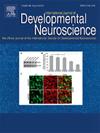Cuscuta epithymum extract affects epileptic offspring behaviour and weight after applying preconception immobility stress on parents
Abstract
Introduction
Studies have indicated a link between stress during pregnancy and stress reactivity in offspring. In this study, we investigated the effect of Cuscuta epithymum (CE) extract on seizure and body weight in offspring born to stressed parents (pre-pregnancy).
Methods
Male and female rats were randomly separated into four groups. Then, the animals were subjected to restraint stress once a day for 50 (male) and 15 (female) continuous days. At the same time, rats in the control and stress groups received normal saline while the other two groups received the CE extract. After the stress induction, the control and experimental rats were mated to create eight types of coupling combinations as follows: McFc, McFs, MsFc, MsFs, McFc + EX, McFs + EX, MsFc + EX and MsFs + EX (M, male; F, female; C, control; S, stress; EX, extract). Then, the pups were weighed on postnatal days (PND) 1, 15 and 25. They were also evaluated for pentylenetetrazol (PTZ)-induced seizure on PND 25.
Results
The results showed that prolonged parental exposure to stress led to a significant increase in the duration and number of tonic–clonic (TC) seizures, duration of standing on two legs, firmly clinging to the ground, number of head nodding, total score of seizure behaviours and duration of tail rigidity in offspring. Moreover, the onset of the first convulsive behaviour was accelerated. Furthermore, a significantly lower body weight was observed in pre-conceptionally stressed offspring. However, the CE extract significantly improved these symptoms.
Conclusion
It can be concluded that CE administration possibly improves the consequences of pre-pregnancy stress, as well as seizure behaviours and weight loss in pups.


 求助内容:
求助内容: 应助结果提醒方式:
应助结果提醒方式:


